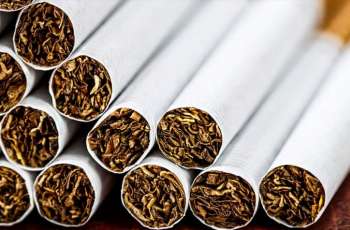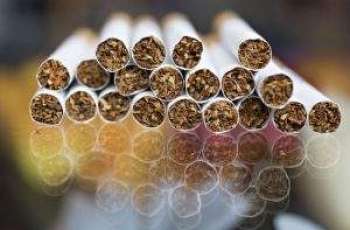WASHINGTON (Pakistan Point News / Sputnik - 22nd May, 2020) A small barbershop in Harpers Ferry, West Virginia, receives calls from clients craving for a hairdo from all neighboring US states, but post-quarantine limitations do not allow small businesses to take full advantage of the pent up demand for their services.
In West Virginia a client can already expect being pampered in a beauty parlor and seated in a restaurant, Pennsylvania has moved to greenlight non-food retail, while Washington, DC, the nation's capital, is still a city of online orders and shaggy hairstyles.
US states and territories are gradually emerging from coronavirus lockdowns - at an uneven pace with varying priorities to reflect different outbreak footprints and, some would argue, political divisions. But everywhere reopening involves adjusting to a new kind of normalcy with obsessive attention to the hygiene and a range of restrictions, residual, yet often significant enough to challenge the very viability of businesses.
"There is so much more to do - not only to serve our guests but also to like constantly keeping things clean, rubbing things down, washing our hands," Vi Vo Nguyen, a Harpers Ferry beauty parlor owner, says. "Yes, it's definitely a lot more work for us to do throughout a day on top of serving our customers."
She dyes a client's hair, wearing two layers of masks. Only one patron at a time is allowed inside the salon with a face safely covered, hands carefully washed upon arrival and with minimum personal belongings.
"As you can see, we are just a small salon and we try not to overcrowd it... We serve them one on one and social distance as much as we can. We don't chitchat as much as we used to," Nguyen explains the new routine. "And we've cut our services which are unsafe to provide right now - waxing, facing, things like that."
Restrictions have reduced the salon's capacity to six to 8 customers per day, a fraction of those who seek beauty help.
"We actually have a lot people call from Maryland, Virginia, because barbershops there are not open yet. We haven't been able to serve so many new clients... We are focusing on our regulars," Nguyen says.
But there was an out of state call she couldn't turn down - from a woman who got married the other day.
"She is coming from Pennsylvania to have her hair done," Nguyen says.
Richard Schaffer watches his staff put the final touches to the outdoor dining terrace overlooking a forested mountain ridge beyond a river and a XIX century Harpers Ferry train station. He is far from jubilant. With indoor dining still prohibited and new safety guidance in place his restaurant can accommodate only 40 clients compared to almost 150 last summer.
"With 40 people seated out there that's not going to work. We are not going to make enough money to stay open if we can only seat 40. We will have to shut it down. Again," Schaffer says. "If we can't reopen, everyone goes back on unemployment."
His business has been surviving through the quarantine on a Paycheck Protection Program forgivable loan, essentially a government grant.
"The grant is $110,000. We divide it - 80 percent for employees and the remainder goes to the building, maintenance, taxes, insurance, repairs," Schaffer explains. "It's very hard to make ends meet. Right now we can do it, because we have a CARES Act grant. After that we will see where we are."
Financial difficulties notwithstanding, he makes clear there will be no compromise on safety. Apart from running the restaurant, Schaffer is a full time Fire Department officer. He is "on top" of all guidelines and determined to enforce them.
"They [customers] have to maintain safety distancing and their own safety standards. If we see someone walking around the tables, not socially distanced, we are going to ask him to leave," he says. "I am not playing games with it. If I don't see what I like, they are out."
A neighboring coffee shop is already open, but all its seven outdoor tables are empty, leaving the owner, Tabatha Chelsey, with ample time to share her concerns. It turns out that closed parking lots deter many tourists who would otherwise come to see the historic town, raided in 1859 by abolitionist John Brown in a botched attempt to ignite a slave revolt.
"If the parking was open I do believe we would have quite a few people down here," she says. "We are a tourist community, we are located in a national park. We are kind of different from other places - we have two guidelines, the town guidelines and the government guidelines for the park. They own the lots."
Recruiting may also be an issue as employees, laid off at the height of the pandemic, often make more money on unemployment benefits, beefed up by the government, than on their previous jobs.
"Because of the extra $600 a lot of employees are making more money than they were when they worked in the regular job. But people still want to come back to work, they don't want to sit home, they want to get back to their regular lives," she says, lauding government efforts. "They have done a tremendous job getting people their unemployment and helping them."
Downtown Greensburg, Pennsylvania, greets its retail customers with chalk graffiti strewn over pavements.
"We missed you", "Welcome back," "Support local," and other colorful inscriptions read.
A men's apparel store was closed for seven weeks, living off online orders and gift certificates sold to loyal customers. Its owner, Kevin Miscik, described the great lengths they went through to reopen safely.
"We cleaned our entire store. We have hand sanitizers. We have masks for people if they are not coming with a mask. I have a sink available in my office when they can wash their hands," he says.
The store even has an elaborate protocol that allows it to operate a fitting room.
"They can still try things on. Every time I disinfect the fitting room after they are done and then I also put clothes out for 15 minutes or so before putting them back on a shelf again," Miscik explains.
TO BUILD A PLANE WHILE IT'S FLYING
While a Mexican food restaurant in Washington still operates on delivery mode, its manager, Shane Weeks, studies best reopening practices of other states and often finds them confusing.
"It's like trying to build the airplane while it's in the air flying. They don't know what's going to work and what's not going to work," he says. "They come out with these guidelines and then the next day they might revisit those guidelines because 'Oh jeez, this is not going to work, maybe this is too strict, or maybe this is not strict enough.'"
Nevertheless, preparations are already underway in the restaurant to shift into full gear as soon as the capital gives it the go ahead.
"We are lucky enough to have a good solid foundation where we as a company can get hand sanitizers stationed throughout our restaurant. We are already putting it in place when we are ready to open," Weeks says. "We are going to have nice stickers around the floor to make sure you are socially distancing and we are already coming up with the safety sanitation guidelines."
He does not know when they will be allowed to reopen as Washington pursues one of the most conservative mitigation strategies in the country.
"I know that the city has just extended the stay-at-home order to mid-June... But once it gets lifted, the city has to go through different phases as far as what needs to be accomplished before everything can reopen," Weeks explains.



